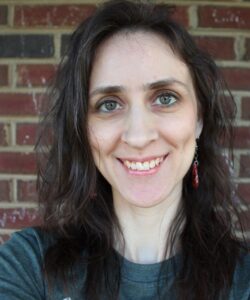A lot of people hear the phrase “Christian unschooling” and assume it’s an oxymoron. This is because when they hear “unschooling,” they assume “unparenting” — a complete lack of boundaries. Or, in biblical terms, that this is a situation where “a child left to himself brings shame to his mother.” (Prov. 29:15)
But this is a misconception, and I’ll tell you why: the “un” in unschooling is about schooling — academics. Granted, there are some people who carry a similar mindset across to other things and also don’t set boundaries or provide direction in other things, but that is a family-by-family choice that is not inherent to unschooling.
What Does the Bible Say?
The Bible has some pretty clear instructions for parents. Christian parents are to raise our children in the nurture and admonition of the Lord. (Eph. 6:4) We’re to speak of the law of God all the time — from the time we get up to the time we lie back down, at home and abroad. Our home should be pervaded with the Word of God. (Deut. 6:4-9) We learn that the rod and reproof/rebuke bring wisdom. (Prov. 29:15, again)
But the Bible never tells us to teach academics.
Now, don’t get me wrong. The Bible certainly talks about principles related to knowledge, and to specific fields of study, like history and science. And I am not saying that we can’t teach these things or shouldn’t teach these things. What I am saying is that the idea that a certain body of academic knowledge and/or a particular set of skills are essential for teaching to everybody is extra-biblical. God didn’t set that standard; man did.
Discipleship vs. Academics
With that foundation laid, it should come as little surprise that, when it comes to “Christian unschooling,” I see the distinction between discipleship and academics as a very important one. I am, as a parent, charged by God to take an active role in the discipleship of my children, day in and day out. I take that responsibility seriously. We nurture and discipline. We catechize our children. We read the Bible daily and surround them with theologically-solid books and music.
We walk through life with them, we discuss the things and the issues in their world, and we teach them to form their worldview based on Scripture.
But academics are not discipleship. God did not charge me with teaching my children to read, or with covering the Korean War, or with making sure they have four credits of science with labs. That means I’m free to operate in that area based on the principles I see in Scripture, without being bound by the standards man has set.
What About Academics?
By this point, you might be starting to panic that we’re making a bad name for homeschoolers by shipping off illiterate children into the world. I assure you, my children are not illiterate! (Well, the 2-year-old still is. I think we can give her a pass for now.)
There are things that are valuable elements to the Christian faith. It is good to be able to read well, for instance, so we can read the Bible. The use of equal weights and measures demands the ability to use weights and measures. Good communication skills are necessary if we want to be able to give an answer for the hope that is in us. (1 Pe. 3:15)
Still other things are a matter of prudence. If we are to engage well with government, we need to understand how our government works. If we want to avoid repeating the mistakes of our forebears, we need to know something about history. If we want to be effective change-makers in our communities, we need skills and knowledge that enable us to be well-functioning citizens.
So, yes, there is knowledge (and there are skills) that I believe are essential, and still others I find beneficial. And yet I believe that, for the most part, these are best gained by living a life, not by sitting and schooling in preparation for getting to have a life “someday.”
How Unschoolers Learn
We don’t sit down and have “walking lessons” or “talking lessons” with our toddlers. We interact with them, of course! But they learn these things — along with colors and shapes and emotions and all the other things that toddlers and preschoolers learn — through their own experience and by hundreds of tiny micro-interactions over days and weeks and months and years.
They’re natural learners. Allowed to live life alongside us, children will learn more advanced skills the same way — through their own experience and by micro-interactions with us and others. Nearly anything truly essential can, and likely will, be “caught” through living life. Why do I say that? Because if you need it for everyday life, you use it in everyday life, and when we use information or skills, we learn and develop them (just like that toddler learned to talk).
Humans are also naturally curious. Permitted to live and learn without coercion that stifles that curiosity, they develop interests and pursue those interests, taking them beyond the essentials of everyday life. And they grow into educated individuals, with passions and knowledge and skill sets all their own, curated for doing what God has called them to do, rather than what God has called someone else to do, or a “least common denominator” skill set that prepares them to be just another cog in the wheel.
And that’s what we’re ultimately after. My job is to train up young people in the way they should go — to disciple them into godly men and women who can step into their own callings as members of the Body. (Prov. 22:6; 1 Cor. 12:12-27)



